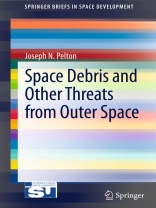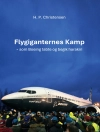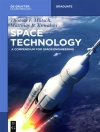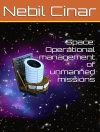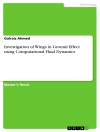The mounting problem of space debris in low earth orbit and its threat to the operation of application satellites has been increasingly recognized as space activities increase. The efforts of the Inter Agency Space Debris Coordinating Committee (IADC) and UN COPUS have now led to international guidelines to mitigate the creation of new debris. This book discusses the technical studies being developed for active removal processes and otherwise mitigating problems of space debris, particularly in low earth orbit. This book also considers threats to space systems and the Earth that comes from natural causes such as asteroids, coronal mass ejections, and radiation. After more than half a century of space applications and explorations, the time has come to consider ways to provide sustainability for long-term space activities.
Содержание
Introduction to Threats in Outer Space.- Orbital Debris – A Growing Threat and the Kessler Syndrome.- The Various Orbits and their threat levels (LEO, polar, Meo and Geo).- The Efforts of Inter Agency Space Debris Coordinating Committee (IADC) and UN COPUOS.- Space Debris Remediation and Removal Initiatives.- NEOS, Asteroids and Comets.- Solar Flares and CMEs.- Radiation and the Ozone Layer and Other Concerns from Space Weather.- Top Ten Things to Know about Threats in Outer Space.
Об авторе
Joseph N. Pelton, Ph.D., is the principal of Pelton Consulting International. He is President of the International Space Safety Foundation and a member of the Executive Board of the International Association for the Advancement of Space Safety. He is the former Dean of the International Space University and Director Emeritus of the Space and Advanced Communications Research Institute (SACRI) at George Washington University. Dr. Pelton served as Director of the Accelerated Masters Program in Telecommunications and Computers at the George Washington University from 1998 to 2004. Dr. Pelton was the Director of the Interdisciplinary Telecommunications Program at the University of Colorado from 1988 to 1997, and at the time it was the largest such graduate program in the U.S. He previously held various positions at Intelsat and Comsat including serving as Director of Project SHARE and Director of Strategic Policy for Intelsat. Intelsat’s Project SHARE gave birth to the Chinese National TV University.
Dr. Pelton was the founder of the Arthur C. Clarke Foundation and remains as the Vice Chairman on its Board of Directors. He has been active in the Arlington, Virginia community for many years as President of the Arlington County Civic Federation, as a member of the Long Range Planning Commission that initiated “smart growth” in Arlington and is currently Chairman of the IT Advisory Commission for Arlington County and Chair of the Civic Federation’s Environmental Committee.
Pelton is widely published with some 35 books written, co-authored or co-edited. His Global Talk won the Eugene Emme Literature Award and was nominated for a Pulitzer Prize. He is the co-author of the book Future Cities published by the Intelligent Communities Forum and is currently working on a book called Safe Cities that examines how broadband communications systems can makecities safer and more responsive to the needs of citizens and improve education and health care services. Most of his books are about space, satellite communications, and the future of technology and its impact on society. He is on the Advisory Board of the World Future Society and also frequently speaks and writes as a futurist.
Dr. Pelton is a member of the International Academy of Astronautics, an Associate Fellow of the American Institute of Aeronautics and Astronautics (AIAA) and a Fellow of the International Association for the Advancement of Space Safety (IAASS). He was the Founding President of the Society of Satellite Professional International (SSPI) and a member of the SSPI Hall of Fame. In 2005 he won the ISCe Award for excellence in education and has also won the International Communication Association (ICA) award as the educator of the year. For the last two years he has served as President of the Comsat Alumni and Retirees Association.
He received his degrees as follows: B.S. from the University of Tulsa, M.S. from the New York University and his doctorate from Georgetown University.
